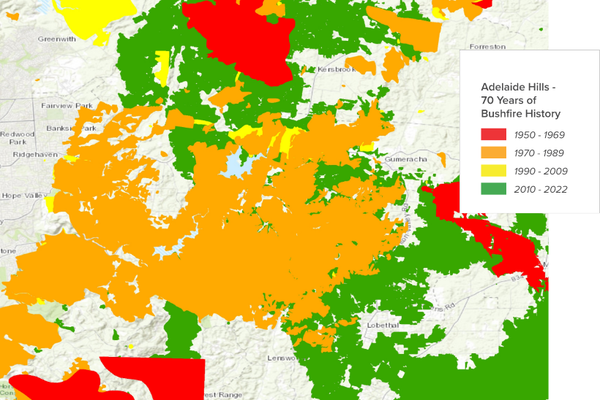Beyond the lab: The Eureka Prize for Societal Impact in Science
Scientific innovation and invention can achieve scale when researchers work together with external partners to create real-world improvements – often in new or unexpected ways. We caught up with the Associate Dean Impact Partnerships and Neuroscientist at UNSW, Associate Professor Kelly Clemens, to discuss the importance of incorporating a societal impact lens into everything the university does, and to learn more about the new Eureka Prize for Societal Impact in Science.

Associate Professor Kelly Clemens, Neuroscientist and Associate Dean Impact Partnerships UNSW.
Image: Supplied.© UNSW
UNSW is a research leader within Australia and around the world, but the responsibilities held by universities goes beyond that. How does having a focus on societal impact shape UNSW’s understanding of its role in broader society?
In 2025, UNSW is launching our Societal Impact Framework that will inform and guide our university for the next 25 years. This is an exciting time for UNSW, as we reshape how we contribute through education, research and leadership to our local, national and international community. The Framework connects us with the most pressing challenges of our times and identifies the areas in which UNSW can have unique and significant impact – where we can really make a difference.
We recognise that this is only possible when we step outside of our bubble, embracing advice, knowledge and experience from the world around us – especially Indigenous Knowledge. At the same time, we want to celebrate how working with partners external to the university, whether local communities, state or federal government, not-for-profit or industry partners, provides a vehicle through which our new knowledge can extend into the world and effect real change.
UNSW's focus on societal impact significantly shapes its understanding of our role in broader society by aligning our efforts with the most pressing global challenges. This focus is encapsulated in the UNSW Societal Impact Framework.
Can you tell us a little bit about UNSW’s Societal Impact framework, and why it is a great basis for an Australian Museum Eureka Prize?
The UNSW Societal Impact Framework offers a new outlook for UNSW, with a focus on core areas that reflect public issues, strengthening our identity as drivers of positive societal change. Our focus will centre on accelerating the transition to a sustainable society and planet, advancing economic and social prosperity, enabling healthy lives and strengthening societal resilience, security and cohesion.
A really great example of how science can have an impact on society comes from UNSW’s Professor Jes Sammut, a researcher in the School of Biological, Earth and Environmental Sciences. Jes who works with the National Fisheries Authority of Papua New Guinea and communities in PNG to improve the health of remote communities that suffer due to a traditionally low protein diet. By introducing and improving fish farming, Jes’ program of research has become a means to drive community change and growth, including a reduction in crime and an increase in local employment. This is a great example of research which is having a profound impact on the lives, health and prosperity of remote communities globally.
The new Eureka prize for Societal Impact celebrates these core values, with a particular emphasis on the contribution of science. This prize honours how scientific innovation and invention achieves scale when researchers work together with external partners to create real-world improvements – often in new or unexpected ways.

© UNSW
The UNSW Eureka Prize for Societal Impact in Science is awarded to individuals or teams who, through partnership with industry, government or not-for-profit, have transformed their scientific research into practical solutions that address pressing global societal challenges. Tell us more about the prize purpose and why this prize is important.
The purpose of this prize is to celebrate the ripple effect that science can and does have across the globe, for the benefit of people and the world we live in. Many of today’s modern discoveries have their origins in basic discovery science, although these are not always expected, visible, or acknowledged.
For example, RNA is at the core of our biology – the software of life – translating our DNA into the very products and processes that make us human. As well as being the key ingredient in COVID-19 vaccines, RNA technology developed by scientists and enabled through biotechnology groups, is well on the way to becoming the key treatment for conditions like cystic fibrosis, schizophrenia and cancer.
This prize will bring visibility to the role science has formulating the solutions that improve the society in which we live. Through collaboration within, across and outside of our laboratories, these humble origins can be transformative.

© UNSW
Who might consider entering this prize?
This prize encourages entries from all the science, technology, engineering, mathematics or medical (STEMM) disciplines. Entries can come from all stages of a research journey, whether it is at the beginning, when the potential of a new discovery is recognised and a path to translation is planned. In the middle, where a person or group of people recognised the potential for impact in a single or collection of research findings, and enabled development towards creating societal impact. Or, at the time of translation – those who bought a unique skill set, drive and ambition to create scale and impact by delivering discovery to those who need it most.
What practical impacts might the broader community observe in their day to day lives due to the types of innovative collaborations and solutions recognised by this prize?
Science has long enhanced lives, society and the environment, and it has also had a huge economic impact. From UNSW alone, scientific endeavours pump more than 350 million into the Australian economy and add $2.2 billion to the global GDP each year.
This Eureka Prize recognises the impact of research on societal challenges and the essential role of a collaborative partner in achieving this impact. Examples in the UNSW community include:
- An early intervention program co-developed with Australian schools and led by UNSW Psychologist, Professor Eva Kimonis, has led to profound improvements in dysfunctional student behaviour, changing the educational trajectory of many children.
- Professor Rob Brander’s log-standing partnership with Surf Lifesaving Australia saves lives by revealing the hidden power of ocean rips.
- Professor Kaarin Anstey developed an online 20-minute assessment for dementia risk. CogDrisk is accessible from home, helping individuals and healthcare professionals take those critical early steps towards treatment and support.
- A meet up between old friends led UNSW Associate Professor Vinh Nguyen to become the scientific advisor and UNSW lead collaborator for the Benignancy Group, a biotech company designing novel therapies for diseases of the ear, nose, throat, head and neck with a focus on remote communities.
- Each year, millions of people experience a urinary tract infection (UTI) —more than one in two women and one in twenty men likely to have a UTI in their lifetime. The UNSW RNA Institute is part of a $1.8 million MRFF funded collaboration to develop an mRNA vaccine for urinary tract infections (UTIs).
These are just some of the examples of where science is having an impact on our community. We hope this prize will offer an opportunity to celebrate many more.

© UNSW
What excites you most about this space?
A new focus on creating societal impact in science is changing the way we do science. It’s changing the way universities see themselves and our role in society. We have the capacity to have a major influence on the world around us, and with that comes enormous responsibility, but also capability. It’s time we recognise that and lean into the challenge.
The Australian Museum Eureka Prizes are the country’s most comprehensive national science awards, honouring excellence across the areas of research & innovation, leadership, science engagement, and school science.





